If you’ve been in any health insurance conversation lately, you’ve probably heard the term ICHRA tossed around. It’s everywhere right now, and while it’s a slick option for employers tired of playing the group health game, it’s got some hidden quirks.
One big quirk is that it messes with Health Savings Account (HSA) eligibility, and most people don’t realize how much. This raises questions about whether both of these insurance solutions can work together or whether there are obstacles to each solution’s effectiveness.
Quick ICHRA Refresher
An Individual Coverage Health Reimbursement Account (ICHRA) lets employers give employees tax-free dollars to buy their own health insurance. It reimburses employees’ premiums and potentially out-of-pocket medical expenses, but it gets dicey here.
Can You Have an HSA With an ICHRA?
You can, but only in a specific plan set-up. To be HSA-eligible, you have to:
- Be enrolled in a High Deductible Health Plan (HDHP) that meets IRS rules
- Have no other disqualifying health coverage.
Here’s the kicker: most medical reimbursement arrangements are considered disqualifying.
If an employee’s ICHRA is set up to:
- Reimburse only premiums. If the employee picks an HSA-qualified HDHP, the employee can still contribute to an HSA.
- Reimburse premiums and out-of-pocket expenses. Bad news, the extra “out-of-pocket” reimbursement is considered “other coverage” by the IRS and disqualifies the employee from contributing to an HSA, even if they bought an HDHP.
This is where many employers, and sometimes brokers, trip up.
This Matters Because of The Ripple Effects
HSAs aren’t just a trendy health savings tool but a proper tax shelter many people access because of these benefits:
- Tax-free contributions
- Tax-free growth
- Tax-free withdrawals for qualified medical expenses
- You can use HSAs like a retirement account after age 65.
When ICHRAs disqualify employees from contributing to an HSA, it pulls the plug on these tax advantages, and this loss quickly adds up with the following consequences:
- Fewer active HSA contributors. Employees with ICHRAs can have old HSAs they can’t actively add to because contributions will stop unless they meet all the strict requirements mentioned above.
- Missed long-term savings opportunities. People miss out on years of tax-free growth without regular contributions.
- Employer confusion. Employers often don’t understand how an ICHRA can impact the HSA option, complicating their choices for setting up employee benefit options and increasing their frustration on missing possible problems like this one.
What Agents Should Be Telling Clients
If you’ve got clients eyeing an ICHRA setup, be open about these issues at the start of the conversation.
If they want to preserve HSA eligibility:
- Set up the ICHRA to only reimburse individual plan premiums
- Confirm that their local marketplace or private exchange has good, affordable, HSA-qualified HDHP options
- Educating employees about what to buy and how to stay compliant so they can contribute to an HSA is a must. Be as specific as possible in listing specific plans they can enroll in to maintain their ability to contribute to an HSA.
If not:
- Make it clear that HSA contributions will no longer be allowed
- Help employees plan how they’ll manage medical expenses without HSA tax advantages
- Position the ICHRA’s flexibility and simplicity as a tradeoff employees receive for losing the ability to contribute to an HSA
Is This the End of HSAs?
No, but it’s a shift in how HSAs are used in benefits programs employers deploy. As more small-to-midsize employers move to ICHRAs fewer people will actively contribute to HSAs, taking these valuable tax shelter benefits off the table for these employees.
ICHRA is a great tool, but it’s not HSA-friendly by default. That’s why it’s more important than ever for agents to navigate these decisions with straightforward, honest advice to employers and employees alike.
Contact Agility at (866) 590-9771 or email [email protected] to help you:
- Build your ICHRA pitch deck to clearly address these questions and issues for employers and employees,
- Build your ICHRA models,
- Develop objection answers,
- Build comparison tools employers need to see to reach “yes” to build your agency’s book of business.
Agility can also add you to our free weekly email list for tips and vital information!
ICHRA isn’t the villain here, but a good wingman like you must present it accurately for maximum benefit and understanding!



